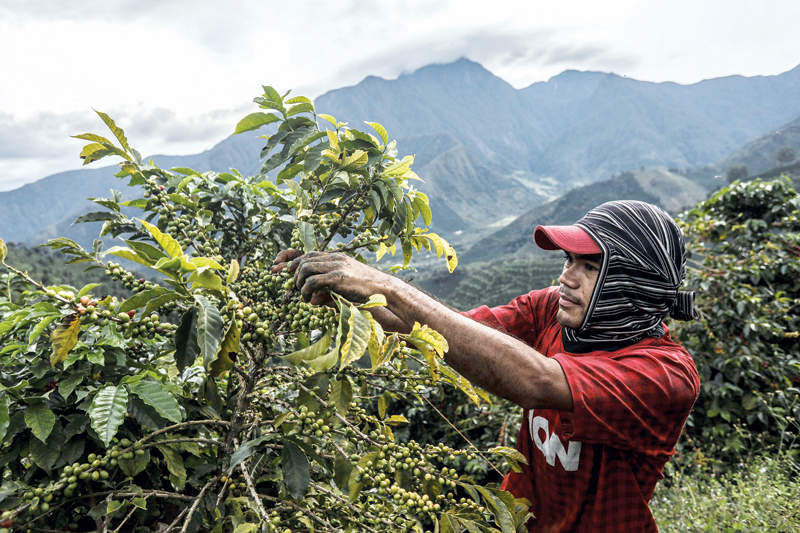

Colombia’s coffee may be known as the best in the world, but that doesn’t mean the South American country can ask top dollar for it. Coffee prices are regulated by the New York Stock Exchange, which growers blame for the crash that has devastated their industry. “We want to offer our coffee at a fair price, which covers the production costs and a reasonable profit,” Jose Sierra, manager of the National Coffee Growers Federation (FNC), said.
The problem is that being tied to a stock exchange not only restricts the ability to set your own prices, but also leaves you at the mercy of traders.
“Stock market speculators who buy coffee securities... can dump them the moment they like, which then sends the price tumbling to the floor,” said Sierra.
“That’s why we want to stop using the New York price as a reference.” Colombia is the third largest coffee producer in the world, after Brazil and Vietnam, and number one amongst those known for their high quality soft beans.
The international reference price for coffee has dropped from a high of $1.5 per pound in 2016 to less than a dollar in February.
And while Colombian coffee has a 20 cent premium due to its high quality, that’s not enough.
“I’ve never seen such a dramatic situation as this,” said Sierra, who has been FNC’s manager for 25 years.
“They’re paying us 640,000 pesos for a 125kg shipment of coffee and the production costs are 790,000 pesos,” said Sierra.
That’s a loss of $53.60 for every transaction.
The price crash is also a result of surplus. According to the International Coffee Organization (OIC), production — measured in 60-kilogramme bags — in 2018/19 should hit 167 million bags compared to the expected worldwide consumption of 165 million.
At $1.20 per pound the current price for Colombian coffee is less than the $1.40 it fetched in 1983, said Fernando Morales-De La Cruz, from the Cafe for Change organisation campaigning for a greater distribution of coffee profits going to those working in its production.
He says that a pound of coffee produces 55 cups, but while “the consumer pays $1-$3, depending on the country, for a cup of coffee, the producer is sacrificing the value of his land.” The FNC says the coffee market generates around $200 billion a year, but producers see only 10 per cent of that.
In order to break away from the stock exchange, Colombia needs to find allies amongst other soft coffee producers in Central America and Africa whose quality would allow them to negotiate their own prices, the FNC says. — AFP
Oman Observer is now on the WhatsApp channel. Click here



